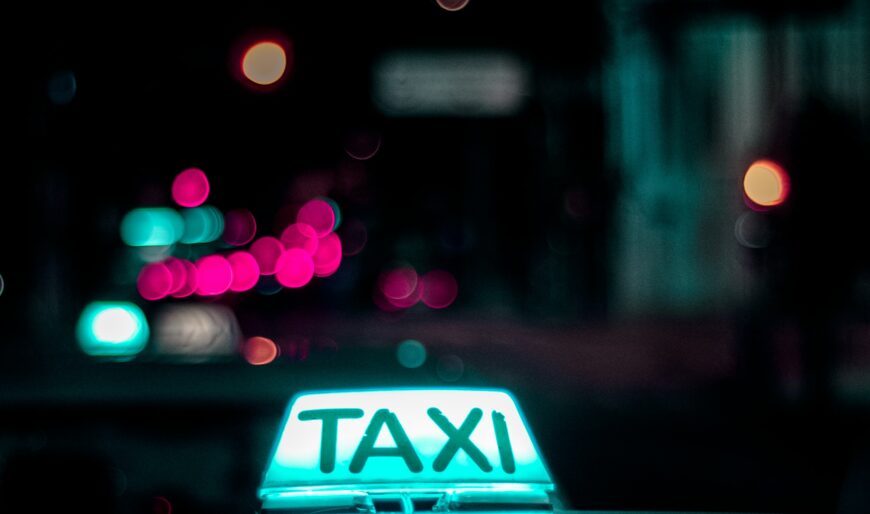Uber drivers have right to minimum wage and holiday pay, Supreme Court rules
The Supreme Court has ruled today that drivers of Uber taxis are not self-employed and thus are eligible for workers' rights.

Uber drivers have the right to be paid at least the minimum wage, the Supreme Court has ruled today (19 February 2021), concluding a years’ long legal battle between the company and trade unions.
In October 2016, a test case involving two Uber drivers – James Farrar and Yaseen Aslam – was taken to the Central London Employment Tribunal by GMB union to challenge their employment status. The judge in this initial hearing found that the drivers were not, in fact, “self-employed” as Uber claimed, but “workers” with the right to receive the minimum wage, holiday pay and rest breaks.
The classification of “worker” recognises that Uber has an element of control over its drivers that precludes the independence a contractor would expect if they were truly self-employed. In fact, the Tribunal said in its ruling that “the notion that Uber in London is a mosaic of 30,000 small businesses linked by a common ‘platform’ is to our minds faintly ridiculous”. The company argued that the contract lay between passengers and drivers, but the Tribunal described this as a “pure fiction”.
“Any organisation … resorting in its documentation to fictions, twisted language and even brand new terminology, merits, we think, a degree of scepticism,” the ruling stated, adding of then-head of Uber’s European operations, Jo Bertram, that “the lady doth protest too much, methinks”.
Despite this scathing criticism, Uber lodged appeal after appeal of the judgment, pushing the case up through the Employment Appeals Tribunal and the Court of Appeal before it reached its conclusion in the Supreme Court, which today had the final say when all six judges ruled unanimously that Uber drivers are ‘workers’.
“I am overjoyed and greatly relieved by this decision, which will bring relief to so many workers in the gig economy who so desperately need it,” Yaseen Aslam, who is now President of the App Drivers & Couriers Union (ADCU), said.
His co-lead claimaint James Farrar, now General Secretary of the ADCU, added: “Uber drivers are cruelly sold a false dream of endless flexibility and entrepreneurial freedom. The reality has been illegally low pay, dangerously long hours and intense digital surveillance.”
In its ruling, the Supreme Court said that “laws such as the National Minimum Wage Act were manifestly enacted to protect those whom Parliament considers to be in need of protection and not just those who are designated by their employer as qualifying for it”.
Such a judgment could have a transformative impact for workers across the whole gig economy, including couriers, delivery drivers and food workers, as it strikes at the heart of “bogus” self-employment, in which employers misrepresent workers’ rights to their staff by telling them they are self-employed and often having them sign a contract that stipulates as much.
The Supreme Court said Uber drivers’ contracts “can be seen to have as their object precluding a driver from claiming rights conferred on workers by the applicable legislation”.
Following today’s conclusive decision, Uber drivers have been found eligible for the minimum wage and holiday pay accrued between the time they logon until the time they log off, including time spent between fares. ACDU pointed out that this decision will incentivise Uber to become more efficient in the way it deploys drivers and vehicles, with “significant implications” not just on in-work poverty but on urban congestion and pollution too.
But the claimants stressed that this ruling must not be the end of the fight for insecure workers, as stronger legislation is needed to prevent exploitation across the board. The government has long promised to bring an Employment Bill to update workers’ rights, but has been accused by the opposition of dragging its heels when it comes to bringing it to Parliament.
The Institute of Employment Rights recommends that any such bill should protect insecure workers by introducing a universal employment status of ‘worker’ that applies to all people in employment bar those who are genuinely self-employed. Under the current law, people classed as ’employees’ (directly hired on guaranteed hours) have more rights – including to sick pay and unfair dismissal – than people classed as ‘workers’ (such as people on zero-hour contracts, agency workers and gig workers). A universal status of ‘worker’ would ensure all people in employment have access to the full suite of rights. The Institute of Employment Rights recommends that these rights are available to all workers from day one on the job and that workers should have better opportunity to build on them through collective bargaining.
“During the six years of these proceedings, we have watched the government commission and then shelve a review of the gig economy yet do nothing to help us,” Yaseen Aslam said.
“I hope in future the government will choose to carry out its duty to enforce the law and protect the most vulnerable from exploitation.”
James Farrar added: “I’m delighted that workers at last have some remedy because of this ruling, but the government must urgently strengthen the law so that gig workers may also have access to sick pay and protection from unfair dismissal.”







